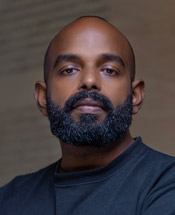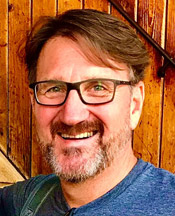Arts 4 ADR project: Bridging the gap between art and community

Sandev Handy
In the vast landscape of art and community, a groundbreaking initiative is taking shape to bridge the realms of culture, dialogue, and societal transformation. Supporting Effective Dispute Resolution (SEDR) partnered with the Museum of Modern and Contemporary Art Sri Lanka (MMCA) last December to increase awareness and understanding of community-based Alternative Dispute Resolution (ADR) mechanisms and facilitate dialogue of the root causes of community-based conflict and disputes through ‘Arts 4 ADR’, a project that examines the potential of art to provoke reflection and offer alternative ways of reconciling communal conflict.
SEDR, launched in 2021, is a four-year access-to-justice project implemented by the British Council in partnership with The Asia Foundation (TAF) and funded by the European Union (EU). The project looks to enhance the availability of mediation as an alternative dispute resolution mechanism. The project focuses on two distinct strands of work: individual disputes and community-level disputes. The National Mediation Programme, which has 330 community mediation boards, deals with individual disputes, while the second part of the project focuses on improving alternative dispute resolution mechanisms, specifically for community-level grievances.

Jacques Carstens
Elaborating on the three specific objectives of the Arts 4 ADR project, Team Leader Jacques Carstens says, “Firstly, we want MMCA to use artistic expression to facilitate the dialogue about the root causes of disputes. So we want them and the artists to use their artwork at a community level to get people to talk about the root causes of disputes. Secondly, we want them to use that same process to make people aware of the ADR mechanisms that exist at the community level—so it’s about awareness, and then thirdly, through the use of artwork and artistic expression; we want the MMCA to encourage people to use these mechanisms that exist at the community level.”
At its core, the MMCA is founded on the principles of education, conservation, preservation, and research in modern and contemporary artwork. The aim is not merely to showcase art but to leverage it as a catalyst for public benefit and education-led programmes. By bridging the gap between art and community, the initiative seeks to foster a deeper understanding of heritage, the environment, and social dynamics.
The Arts 4 ADR project focuses on the contentious issue of land politics in the Northern, Eastern, and Uva provinces of Sri Lanka and symbolises the initiative’s commitment to promoting conversation and engagement. The underlying reasons behind local conflicts in Sri Lanka are intricate and varied, stemming from a blend of historical, political, ethnic, and socio-economic factors. Within this mix, the issue of land rights stands out as a pivotal point of intersection, further complicating the existing complexities. Specifically, in the Northern, Eastern, and Uva provinces, land disputes persistently hinder reconciliation efforts due to the lingering effects of the civil war and militarisation, as well as the implementation of large-scale development projects, agribusiness ventures, and the establishment of archaeological and nature conservation zones.
By commissioning artists to explore and interpret the complexities of land-related conflicts, the MMCA and SEDR seek to initiate conversations that transcend traditional boundaries and perspectives. Research for this project began two years ago and is still ongoing, with Senior Curator Sandev Handy saying, “We essentially pitched this idea of commissioning three artists to address the particular issues and conflicts surrounding lands in the three provinces specifically, and districts specifically in Mannar, Ampara, Trincomalee, and Badulla, and in making that artwork, how did they start to learn about, confront, and think through some of the community conflicts that emerged.”
The artist’s work is only the first component, as it introduces and instigates discussion on the issue at hand. The second component is creating an environment in which people will want to engage in discussion. For this purpose, a fellowship programme focusing on civic engagement was piloted with cultural practitioners, artists, activists, and educators in Mannar, Vavuniya, Ampara, Trincomalee, Badulla, and Monaragala districts who have come on board to work together with the MMCA and artists to develop a pedagogical approach. The fellows, together with the artists, will come together towards the end of this year and implement and host community discussions using this artwork across the three provinces. Simultaneously, the exhibition will also be installed in Colombo in September.
The fellowship programme is not merely a means to an end; it’s a cornerstone of the project’s sustainability strategy. By investing in individuals who hail from the very communities that the project seeks to empower, the initiative ensures that the impact extends far beyond the duration of a single exhibition or event—it is a tangible commitment to ensuring that the impact endures long after the project concludes. These fellows are active agents of change, deeply invested in the long-term success of the project.
The wider aim of this project is to get people to understand that there are different ways to address these conflicts. “In addressing these root causes and having this larger discussion, one might start to understand that there are other options for us to have a conversation about, and those are perhaps the alternative resolution methods and mechanisms that we can start applying and accessing as a community. Who’s able to respond, speak to what’s happening, and participate in this community? How can this instigate us to seek other methods without turning to violence or the court system, which can then last for about 10 years while at the same time, the community conflict is worsening?” says Sandev.
Through the Arts 4 ADR project, SEDR and the MMCA are laying the groundwork for a more inclusive and resilient society—one where art becomes a powerful tool for social change and collective empowerment.
Searching for an ideal partner? Find your soul mate on Hitad.lk, Sri Lanka's favourite marriage proposals page. With Hitad.lk matrimonial advertisements you have access to thousands of ads from potential suitors who are looking for someone just like you.


